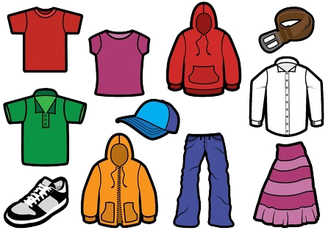
Specific clothing - including even superhero T-shirts - can make people more confident in all sorts of situations. In one study, students were more assured when wearing a Superman t-shirt, and women performed worse in a math test when donning a swimsuit
There could be toxic chemicals used in clothes from fast fashion chains. According to Greenpeace's 2012 study “Toxic Threads: The Big Fashion Stitch-Up,” (141 clothing items from 20 major brands, including Zara, Levi’s, Mango, Calvin Klein and H&M) four garments contained high levels of toxic phthalates, 89 garments contained nonylphenol ethoxylates (NPEs) and two items, both from Zara, contained cancer-causing amines from the use of azo dyes.
Besides, synthetic clothes may harbor bacteria causing infections. Lycra undergarments can promote yeast infections and, in addition, compress nerves.
Lululemon’s Silverescent technology weaves silver into each thread supposedly preventing bacteria from growing and eliminating odor. For some people, though, it works worse than Rhones silver threading technology. Minerale infuses fabric with crushed volcanic rock. Chitosan technology— using crushed shrimp shells to fight odor-causing bacteria -- does not also work in all cases. Cotton prevents some bacteria (such as Micrococci, but not Staphylococci) from growth but it absorbs sweat and keeps clothes moisture. Cocona uses the activated carbon in coconut shells to wick away moisture and block sweaty smells.
